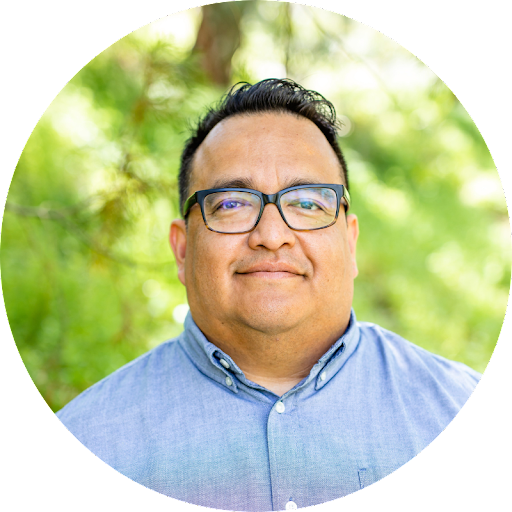
Anthony Travanty
Growing up in the agricultural Midwest, Anthony intrinsically understands the importance of supporting local farms and the economic and social systems within mid-sized communities such as Ashland. A graduate of the University of Minnesota, he has an extensive background in the biological sciences. As a strategic advisor to the Hyslop Foundation and The Hawthorn Hollow Nature Sanctuary and Arboretum in his hometown of Kenosha, WI, he brings his leadership and strategic planning skills to the table. He is deeply concerned with issues surrounding food and water security and understands the importance of sustainable agriculture for the future.
Anthony and his wife, Petra, have been AFC owners and members since 2015, when they first discovered Ashland and opened the popular restaurant, Lorella. Though they are not currently living in Ashland, they maintain very close ties to the community and remain strong advocates for the Ashland Food Coop and Southern Oregon at large.
Currently, Anthony is a chef at the Michelin starred Village Pub in Woodside, CA. He also maintains a roster of private clients. In his free time, Anthony enjoys hiking and canoeing in the beauty of our natural world and playing pinball.
Why do you want to serve as an AFC Board Director?
To begin, I share a passion for the mission of AFC to provide access to healthy, organic food and support local farmers and producers. Within this is a deep desire to promote healthy and sustainable food systems. I would like to deepen our partnerships with local producers by finding ways to incentivize them to expand the variety of products they produce and thereby expand options for our members. Additionally, I feel there are opportunities to further grow the outstanding outreach and educational efforts of the AFC and deepen our ties to the community by expanding our educational programs with input from local farmers and producers.
I desire to make a difference in the community and feel that serving on the AFC Board is an excellent opportunity to shape the policies and direction of an organization that is crucial to Ashland. I want to help find avenues for developing partnerships within the community and strategically ensure the longevity of the Ashland Food Co-op as the institution it is for generations to come. For me, this means ensuring that the AFC Board remains responsive to the needs of its members and the larger community. Furthermore, I want to continue to focus on “our people”, the employees within the organization, and increase retention by emphasizing personal development. If we expect our employees to deliver first-class service to our members, we must first deliver first-class service to our employees.
Furthermore, I feel that I can provide a valuable perspective from outside the community. In many of the organizations in which I am involved, having outside input has often been incredibly useful in strategizing and brainstorming new ideas. As a chef, I have an unrivaled direct relationship with food that I feel will be useful to the coop’s leadership team.
On a personal level, I seek to develop new skills in my own journey as a leader. I feel that there is a great deal I can learn as a member of the AFC Board, including skills in leadership, strategic planning, and financial management, that are valuable in other areas of my life. Part and parcel to my development is building relationships with other Board members, as we are all committed to the same cause: maintaining and expanding the relevance of Ashland Food Co-op as an institution.
I feel it is the responsibility of the AFC Board to remove obstacles faced by our community of farmers and local producers in any way we can, to provide support and help our local farms evolve and innovate. Some of this goal can be achieved by embracing risk (when sensible) to help farmers grow and, in turn, help us grow. Together we can find creative and advantageous ways to support and assist local farms and producers For example: providing low interest loans or grants. Overall, we need to find new ways to secure and enrich our local food economy. We are either striving to get better, or allowing our coop to get worse; there is no such thing as staying the same. We have a unique opportunity to capitalize on the creative spirit of our community of local farmers and I would love to offer my insights and ideas.
What experience, education, training and/or skills make you particularly qualified to serve on the AFC Board of Directors?
As a member of AFC and an advocate for coops at large, and also a member of three coops in the Midwest, the promotion of healthy, organic, and sustainably produced food resonates deeply within me. As an educated person, the importance of a community commitment to supporting local farms and producers is beyond debate. Supporting local businesses is more and more important everyday as capital outflows challenge the survival of local economies everywhere. My experience in business and management, principally in the culinary field, provides a strong foundation for helping to oversee AFC’s operations and making strategic decisions. I also possess strong leadership and collaboration skills within the kitchens I work and the organization with which I am affiliated. Teamwork is as crucial to the hospitality industry as it is to being a Board member. I have a deep understanding of the food industry, including trends, regulations, and best practices, which will be helpful for serving on the AFC Board of Directors. And last, but not least, I am absolutely and completely committed to serving our members, our producers, and the needs of the community, while promoting AFC’s mission and values. Ashland is a very special place. And its co-op is incredibly unique by comparison to other co-ops around the country, not simply in the quality of products being offered to our members, but as a Southern Oregon institution.
What key opportunities do you think AFC faces?
Organic foods are readily available at every grocer in the Rogue Valley. I feel the key opportunities within our community are less about access to organic and natural foods, and more about educating the community as to why AFC is different in its approach to organics and natural foods. I feel that we need to highlight what differentiates us from the rest, while coming up with new services and revenue streams (some ideas: micro loans to local farmers, community organization sponsorship). This can be achieved through increasing our community impact - there is definitely an opportunity to increase its community impact by supporting local nonprofits and community organizations. Doing so can help to build strong relationships with the community and demonstrate AFC’s commitment to social responsibility and diversity.
Secondly, we can enhance our online presence. It is widely recognized that even within smaller markets, online representation yields increased traffic. AFC has an opportunity to enhance its online presence by improving its website and social media channels. This can help to increase visibility and attract new customers, as well as provide better access to information about products and services.
Finally, I feel we need to explore how to make it profitable for farmers to continue producing produce, rather than alternative cash crops in the greater Southern Oregon market. I have seen many farmers stop production of food crops and argue that there is no market for their produce. Rather than look at “why,” I feel we need to start asking “how.”
What is your experience/history with natural and organic foods?
I have been working in seasonally driven, locally sourced kitchens for over 15 years as a cook and a chef - in Minnesota, Oregon, and California. My restaurant in Ashland would not have been possible without the extensive connections with farmers in the Rogue, Applegate, Anderson, and Willamette valleys I developed and still maintain to this day. As a chef, I strive to design menus that focus first and foremost on locally grown produce and locally raised proteins - principally from farmers employing organic practices and best practices with animal husbandry.
I personally shop locally as often as possible - keeping money in the community benefits the community more than any other form of support. Given that I have lived in many different metropolitan areas, I have a larger perspective on how natural food stores - principally coops - operate. As a member of multiple coops (dating back to 1997), I have seen what has led to success and, unfortunately, failure - including the Riverside Co-op in Minneapolis - no longer operational, the Wedge Co-op in Minneapolis, the Seward Coop in Minneapolis, the Outpost Co-op in Milwaukee, and Ashland Food Co-op. These associations coupled with my extensive educational background in biological sciences, natural resource management, and policy work regarding food security through the University of Minnesota Twin Cities and American University of Antigua School of Medicine have given me a high-level knowledge about organic foods, organic agriculture, and other approaches to agriculture (permaculture and biodynamic / Anthroposophic practices).
Thank you for your consideration.

